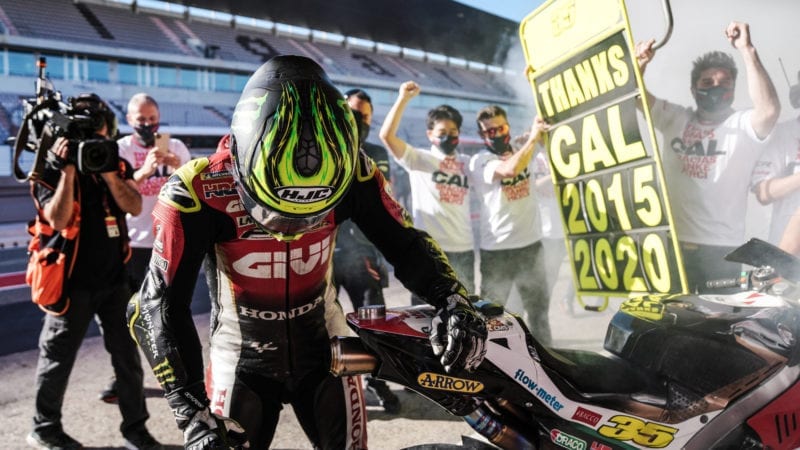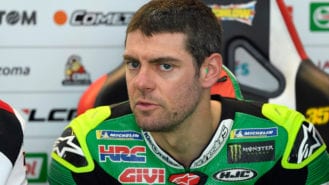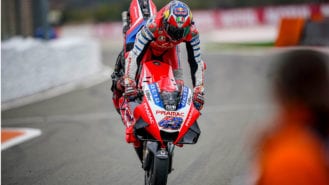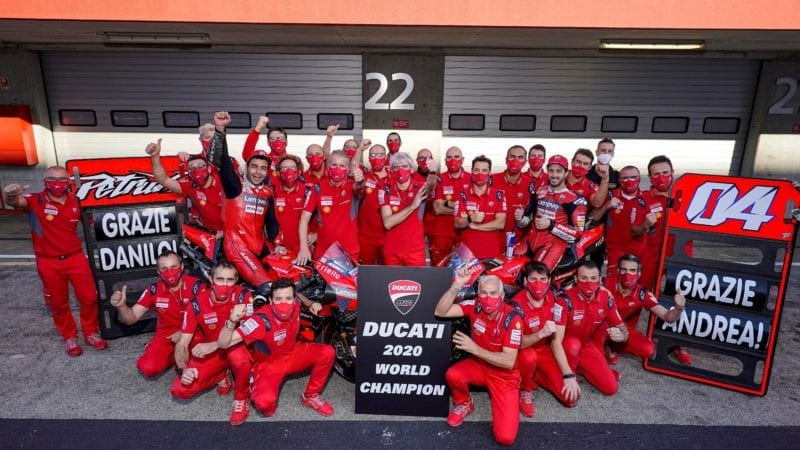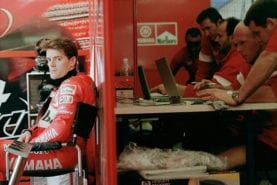One of those addicts who has finally kicked the habit is the paddock’s most famous mechanic. On Sunday afternoon Alex Briggs put away his MotoGP spanners for the last time.
Briggs gets the addiction thing. “My name is Alex Briggs and I travel too much,” he told me on Saturday, grinning widely, because he has worked his way through that mental process, from the terror of stopping doing what you love to the delight of realising that a calmer, slower life at home is going to be wonderful.
People who have worked in MotoGP for decades become addicted to the thrills of the racing life and they also get institutionalised. It’s frightening to envisage life outside the institution, but if you can make that leap of faith you’re going to be alright. It’s a bit like leaving the army.
Crutchlow and Dovizioso have travelled that same mental journey this year and eventually both arrived at the same destination.
“I’m happy to finish – I’m done,” said Crutchlow after completing Sunday’s race, his 168th GP. “Honestly, I was contemplating continuing, but halfway through the year, with my injuries and everything, I knew I’m done with full-season racing.”
Dovizioso felt the same after parking his Ducati Desmosedici for the last time. “For sure I will miss a lot of things but I also feel light at this moment,” he said after his 327th GP.
That feeling of lightness was the absence of that terrible weight of stress, pressure and fear that every motorcycle racer carries on his shoulders 365 days a year. Of course, they are aware of that load when they’re racing, but only when it’s gone do they realise its weight, so all of sudden they’re walking on air, enjoying a dizzying sense of freedom.
Over the decades I’ve seen the faces of so many top racers visibly change when they retire. The tension dissolves, the muscles relax and the mind finally switches out of kill-or-be-killed mode.
Pro racers think about racing all the time. Mick Doohan once told me that even when he was enjoying the offseason, thousands of miles away from a racetrack, he still thought about racing 90 per cent of the time. Even when you’re kicking back with friends, having a few drinks, the racer within is still shouting at you from the back of your mind. You never get to fully switch off.
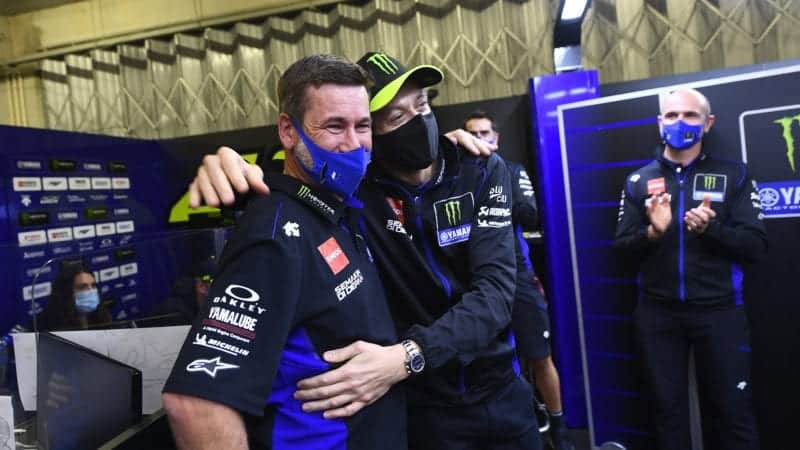
Rossi and Briggs say goodbye, after 21 years together
Yamaha
The fear is there too. Racers always convince themselves that it will never happen to them, but that’s only their conscious mind at work. Their subconscious isn’t so easily fooled. Consider Portimao – Crutchlow, Dovizioso and the rest of the MotoGP grid exceeded 200mph more than 140 times each over the weekend. There’s a lot of stress and risk right there.
Crutchlow has had 179 crashes since he started his MotoGP career in 2011, and those are just race-weekend accidents, so he must’ve jumped off at least 200 times, tests included. That’s a whole lot of pain, some of which will stay with him for the rest of his life.
During preseason testing at Sepang he was still in macho racer mode.
“I like to suffer,” he told me. “I have a hardness about me that if it hurts I want it to hurt more, which is the worst possible mentality you can have as a motorcycle racer, but it works for me.”
Five new MotoGP winners in 2020 can only mean there’s a major generational shift happening.
Well, it worked for him for long enough. We all hope Crutchlow, Dovizioso, Briggs and anyone else who decided that enough was enough on Sunday enjoy their retirement.
Change was already happening before Crutch and Dovi made their excuses and left the party.
There were five new winners in MotoGP during 2020. That’s never happened before, which can only mean there’s a major generational shift happening.
Brad Binder, Joan Mir, Franco Morbidelli, Miguel Oliveira and Fabio Quartararo all climbed to the top step of the podium for the first time during the season. Indeed these first-timers won two-thirds of the races during 2020. That’s a remarkable shift in the balance of power, from the old-timers to the new kids.
Thirty-something racers were quite a thing in MotoGP for a while – Crutchlow, Dovizioso, Jorge Lorenzo and Valentino Rossi running at the front and winning races. That era seems over now because those five youngsters will only get stronger next year. All of a sudden 30 looks old. And as for 40…
This hasn’t happened by chance. In recent seasons most factories have been obsessed with youth, desperate to find the next golden nugget, the next Marc Márquez, from the Moto2 and Moto3 classes. Suzuki has been the most successful in this, signing Mir and Álex Rins when they were young, so they could mould them into their own kind of MotoGP rider.
The loss of Márquez at the season-opening MotoGP race at Jerez wasn’t the first loss that MotoGP suffered in 2020. The global Covid-19 pandemic forced the world into lockdown, leaving governments and authorities with no option but to ban mass gatherings. Thus MotoGP 2020 went ahead beneath empty grandstands.
